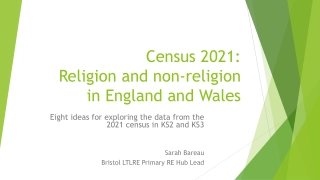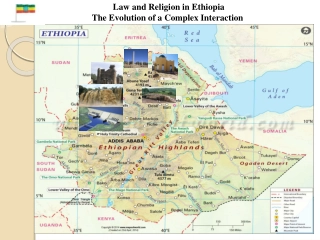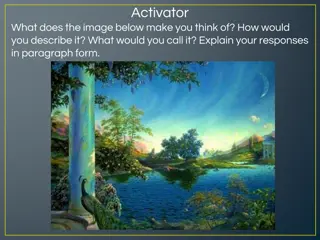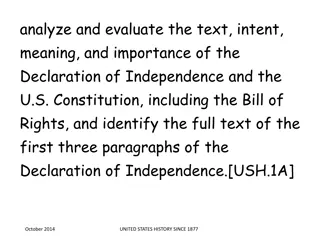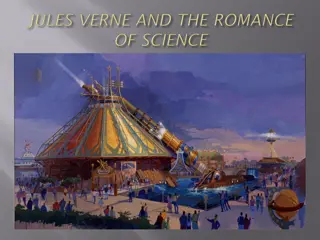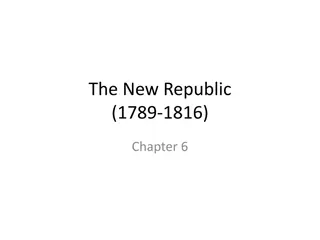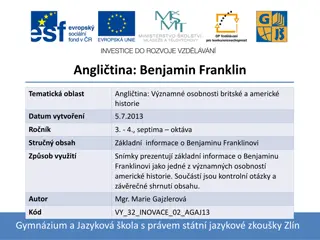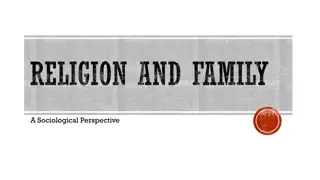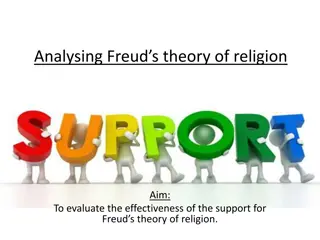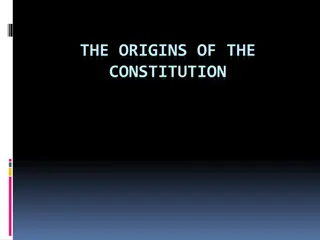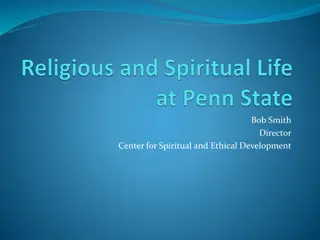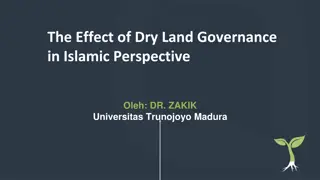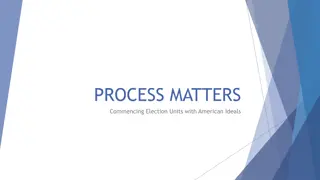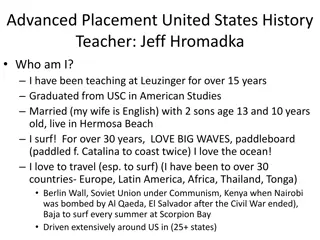America's Founding Ideals: A Historical Perspective on Religion and Governance
The history of America's founding reflects a diverse interplay between Puritanism and Deism, influencing the country's governance and religious landscape. Rooted in principles of faith and secularism, the nation's journey sheds light on the evolution of beliefs and compromises in shaping its constitution and identity.
Download Presentation

Please find below an Image/Link to download the presentation.
The content on the website is provided AS IS for your information and personal use only. It may not be sold, licensed, or shared on other websites without obtaining consent from the author.If you encounter any issues during the download, it is possible that the publisher has removed the file from their server.
You are allowed to download the files provided on this website for personal or commercial use, subject to the condition that they are used lawfully. All files are the property of their respective owners.
The content on the website is provided AS IS for your information and personal use only. It may not be sold, licensed, or shared on other websites without obtaining consent from the author.
E N D
Presentation Transcript
Happy Birthday, America How can we help our country?
A Prayer for America if My people who are called by My name will humble themselves, and pray and seek My face, and turn from their wicked ways, then I will hear from heaven, and will forgive their sin and heal their land. 2 Chronicles 7:14
Dr. John Hannah, DTS RHMA lecture, April, 2009
Americas Beginning Puritanism. (View of the vast majority of colonists.) There is a God. He is the Creator, and He is Holy. We must conform to His standards. Faith in Jesus Christ is the only way of salvation.
Americas Beginning Deism. (Secularism). (Minority view, but disproportionately influential among founders.) God created the Universe, then stepped back and watched. Denied Christ s deity, inspiration of Bible, miracles. George Washington, Thomas Jefferson, James Madison and Benjamin Franklin leaned toward Deism.
Our Nations Founding Documents In our Declaration of Independence, for example, there is reference to Nature s God, to their Creator, and to the protection of Divine Providence. Nowhere in our founding documents is there a reference to Jesus Christ. Why not? Because they could not agree on who Jesus is. John Hannah, RHMA lecture, April, 2009
Why did the Puritans compromise with the Secularists? At the Federal level, our nation began, if at all, with a small c for Christian. At the State level, our nation began with a Capital C for Christian. Why did the Puritans compromise with the Secularists? John Hannah, RHMA lecture, April, 2009
Why did the Puritans compromise with the Secularists? The Christians believed that their State Constitutions would protect them from the Federal Constitution. Were they right? John Hannah, RHMA lecture, April, 2009
What would be the prevailing view of the country? Our nation was founded in such a way that the majority view would prevail on a given subject. As long as the majority of those among the people and those in power were Christian, the nation would follow Christian principles and standards. John Hannah, RHMA lecture, April, 2009
What would be the prevailing view of the country? But if the secularists rose to power, the nation would follow secularism. God, in His grace, has granted our country three huge reprieves from secularism. These are the Great Awakenings. John Hannah, RHMA lecture, April, 2009
The First Great Awakening 1720 s 1760 s (1740-1742)
Pastoral Influences Theodorus Theodorus J. Frelinghuysen J. Frelinghuysen 1692 1692- -1747 Dutch Reformed, Dutch Reformed, New Jersey New Jersey 1747 Came to NJ in 1720 Preached practical Christian living Awareness of God s holiness Emphasized personal conversion & holiness Series of revivals, 1720 s
Pastoral Influences Presbyterian, Presbyterian, New Jersey New Jersey William William Tennent Tennent, Sr. 1673 1673- -1746 , Sr. 1746 Had six sons Built a log cabin college Trained his sons and 24 others to become Presbyterian ministers
Pastoral Influences William William Tennent s Tennent s Log College, 1726 College, 1726 Log Effects of Log College Effects of Log College Provided an excellent education for prospective ministers. These ministers would move and start their own log cabin college.
Pastoral Influences William William Tennent s Tennent s Log College, 1726 College, 1726 Log Effects of Log College Effects of Log College 64 colleges & universities Princeton University University of Pennsylvania Christian faith spread.
Pastoral Influences Gilbert Tennent Gilbert Tennent 1703 1703- -1764 1764 Presbyterian Presbyterian New Jersey New Jersey Son of William Tennent Encouraged by Frelinghausen Need for conversion, holy living Converted souls & rededicated saints
Pastoral Influences Gilbert Tennent Gilbert Tennent 1703 1703- -1764 1764 Presbyterian Presbyterian New Jersey New Jersey Toured New England 1740- 41 Preached on danger of unconverted ministers
Pastoral Influences Jonathan Edwards Jonathan Edwards 1703 1703- -1758 Congregationalist, Congregationalist, Massachusetts Massachusetts 1758 Entered Yale age 12 Consumed with God s love 1734 began preaching on justification by faith Awakenings began in his church
Pastoral Influences Jonathan Edwards Jonathan Edwards 1703 1703- -1758 Congregationalist, Congregationalist, Massachusetts Massachusetts 1758 Sinners in the hands of an angry God Outstanding theologian
Pastoral Influences George Whitefield George Whitefield 1714 1714- -1770 Anglican, Anglican, England England 1770 Friend of Wesleys at Oxford in England Converted, became powerful preacher Excluded by Anglican ministers, began preaching outdoors Came to America 1738
Pastoral Influences George Whitefield George Whitefield 1714 1714- -1770 Anglican, Anglican, England England 1770 Ben Franklin estimated he could preach to 30,000 Outstanding evangelist
What was the impact of these pastors?
Impact of 1 Impact of 1st st Awakening Colonial Church Growth Colonial Church Growth Awakening Denomination 1700 1780
Impact of 1 Impact of 1st st Awakening Colonial Church Growth Colonial Church Growth Awakening Denomination German Reformed 1700 0 1780 201
Impact of 1 Impact of 1st st Awakening Colonial Church Growth Colonial Church Growth Awakening Denomination German Reformed Lutheran 1700 0 7 1780 201 240
Impact of 1 Impact of 1st st Awakening Colonial Church Growth Colonial Church Growth Awakening Denomination German Reformed Lutheran Dutch Reformed 1700 0 7 26 1780 201 240 127
Impact of 1 Impact of 1st st Awakening Colonial Church Growth Colonial Church Growth Awakening Denomination German Reformed Lutheran Dutch Reformed Presbyterian 1700 0 7 26 28 1780 201 240 127 495
Impact of 1 Impact of 1st st Awakening Colonial Church Growth Colonial Church Growth Awakening Denomination German Reformed Lutheran Dutch Reformed Presbyterian Baptist 1700 0 7 26 28 33 1780 201 240 127 495 457
Impact of 1 Impact of 1st st Awakening Colonial Church Growth Colonial Church Growth Awakening Denomination German Reformed Lutheran Dutch Reformed Presbyterian Baptist Anglican 1700 0 7 26 28 33 111 1780 201 240 127 495 457 406
Impact of 1 Impact of 1st st Awakening Colonial Church Growth Colonial Church Growth Awakening Denomination German Reformed Lutheran Dutch Reformed Presbyterian Baptist Anglican Congregational 1700 0 7 26 28 33 111 146 1780 201 240 127 495 457 406 749 United States History for Christian Schools, p. 80
The Impact of the 1 The Impact of the 1st st Awakening Awakening God blessed our country before it ever began. God raised up men of God from both England and America to preach powerful messages of Biblical truth. Thousands upon thousands were converted to Christ.
The Impact of the 1 The Impact of the 1st st Awakening Awakening The gospel was a leveler an equalizer ( all men are created equal ) All have worth, not just the upper crust. There was a Christian core in America at its founding. Alan Heimert: What was awakened in 1740 was the spirit of the American democracy.
What can we do with what we have What can we do with what we have learned? learned? We must pray again for God to have mercy on our country. We must pray that God will raise up men who will have a dramatic spiritual impact on our country. We must pray that God will use us to do our part in sharing Jesus Christ with our friends and neighbors.
The Second Great Awakening 1790 1840 s
The Background of the 2 The Background of the 2nd Awakening Awakening nd Great Great Secularism was gaining the upper hand. For many Americans, drinking and gambling were more important than any creed. John Marshall, Supreme Court Justice: The church was too far gone ever to be revived.
The Background of the 2 The Background of the 2nd Awakening Awakening nd Great Great But God had raised up John Wesley in England (Methodist). In England he preached the need for conversion to Christ and holy living. Methodist Francis Asbury came to America in 1782
The Background of the 2 The Background of the 2nd Awakening Awakening nd Great Great Methodist Circuit Methodist Circuit Riders Riders Tough men with tender hearts Francis Asbury 300,000 miles on horseback Circuit Riding Preacher Circuit Riding Preacher
The Start of the 2 The Start of the 2nd nd Great Awakening Great Awakening Timothy Dwight IV Timothy Dwight IV President of Yale, 1795 President of Yale, 1795 The college was in a most ungodly state. The college church was extinct. Most of the students were skeptical, and rowdies were plenty. US History for Christian Schools, p. 232
The Start of the 2 The Start of the 2nd nd Great Awakening Great Awakening Timothy Dwight IV Timothy Dwight IV President of Yale, 1795 President of Yale, 1795 Wine and liquors were kept in many rooms; intemperance, profanity, gambling, and licentiousness were common. US History for Christian Schools, p. 232
The Start of the 2 The Start of the 2nd nd Great Awakening Great Awakening Timothy Dwight IV Timothy Dwight IV President of Yale, 1795 President of Yale, 1795 Grandson of Jonathan Edwards. Held public debates on Christianity. US History for Christian Schools, p. 232
The Start of the 2 The Start of the 2nd nd Great Awakening Great Awakening Timothy Dwight IV Timothy Dwight IV President of Yale, 1795 President of Yale, 1795 Preached basic Christian theology in chapels. 1/3 of students converted! US History for Christian Schools, p. 232
Camp Meetings in the West Camp Meetings in the West Methodist Camp Meeting Methodist Camp Meeting 1839 1839 Presbyterian James McGready started first camp meeting, 1800, Logan, Kentucky US History for Christian Schools, p. 234
Camp Meetings in the West Camp Meetings in the West Methodist Camp Meeting Methodist Camp Meeting 1839 1839 1801 Cane Ridge camp meeting drew 10,000- 25,000 US History for Christian Schools, p. 234
The Ministry of Charles G. Finney The Ministry of Charles G. Finney Charles G. Finney Charles G. Finney 1792 1792- -1875 Father of American Father of American Evangelists Evangelists Converted in 1821 at a revival. Studied under a Pres. Minister Began preaching in New York State 1875 US History for Christian Schools, p. 235
The Ministry of Charles G. Finney The Ministry of Charles G. Finney Charles G. Finney Charles G. Finney 1792 1792- -1875 Father of American Father of American Evangelists Evangelists 1830 s preaching to huge crowds in New York City Preached on God s judgment for sin 1875 US History for Christian Schools, p. 235
The Ministry of Charles G. Finney The Ministry of Charles G. Finney Charles G. Finney Charles G. Finney 1792 1792- -1875 Father of American Father of American Evangelists Evangelists Anxious bench Protracted meetings up to several weeks in one location. 1875 US History for Christian Schools, p. 235
The Ministry of Charles G. Finney The Ministry of Charles G. Finney Charles G. Finney Charles G. Finney 1792 1792- -1875 Father of American Father of American Evangelists Evangelists Most evangelists today use some of his methods 1875 US History for Christian Schools, p. 235
Impact of the 2 Impact of the 2nd nd Great Awakening Great Awakening Yale became a missionary sending school. The American Board of Commissioners for Foreign Missions was formed (America s 1st foreign mission board). (Congregationalist) Adoniram Judson and Luther Rice went to India in 1812 under ABCFM.
Impact of the 2 Impact of the 2nd nd Great Awakening Great Awakening Adoniram Judson eventually served in Burma. Luther Rice founded a Baptist mission organization. American Bible Society founded. American Tract Society founded. Princeton became a Presbyterian beacon. Thousands converted to Christ.
Impact of the 2 Impact of the 2nd nd Great Awakening Great Awakening American Methodists alone grew from 15,000 in 1785 to 850,000 in 1840. Moral sins declined. Drunkenness on the frontier declined. The foundation for moral reform was laid Prohibition; Abolition of Slavery. A large segment of American society was transformed.


